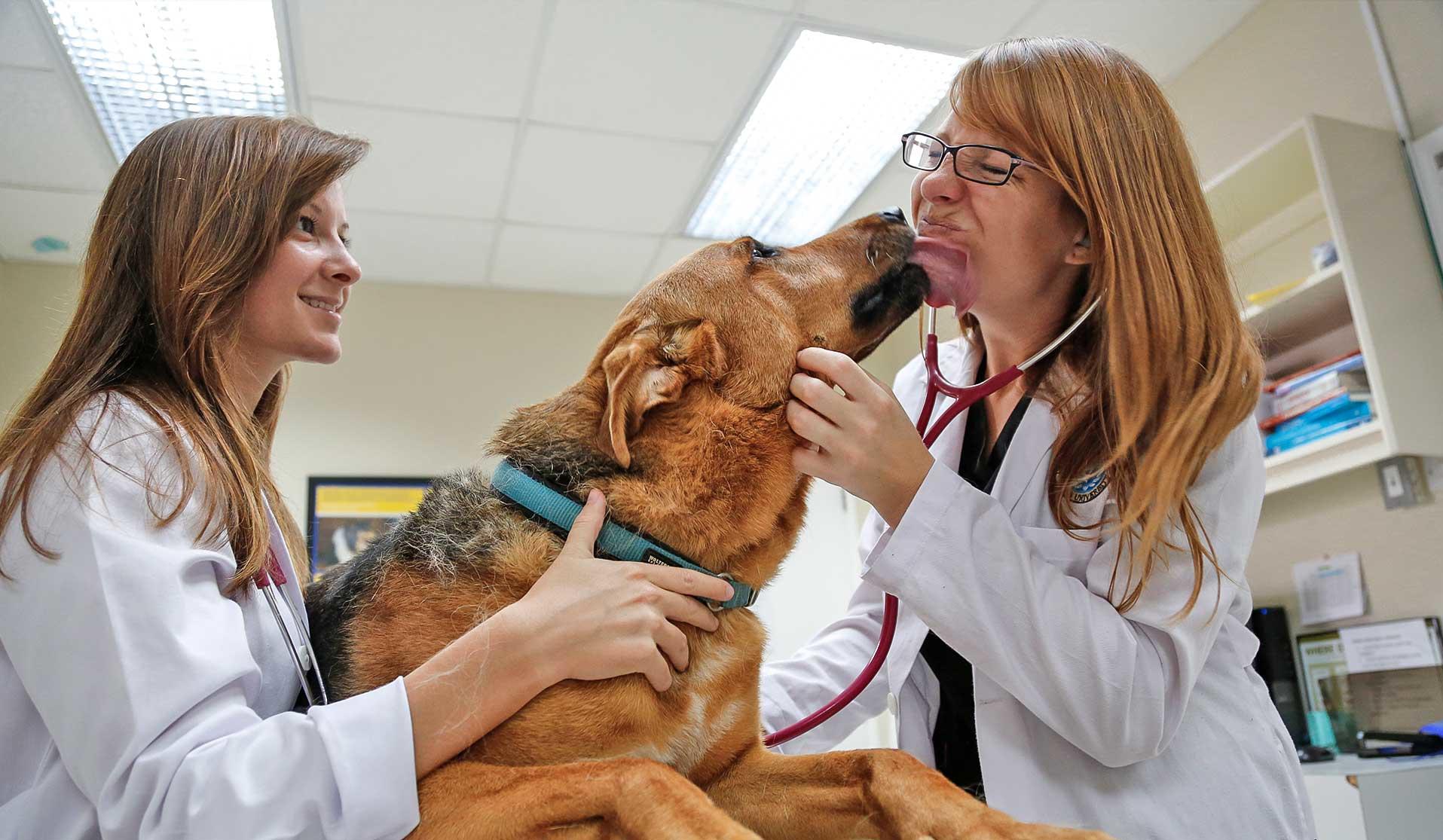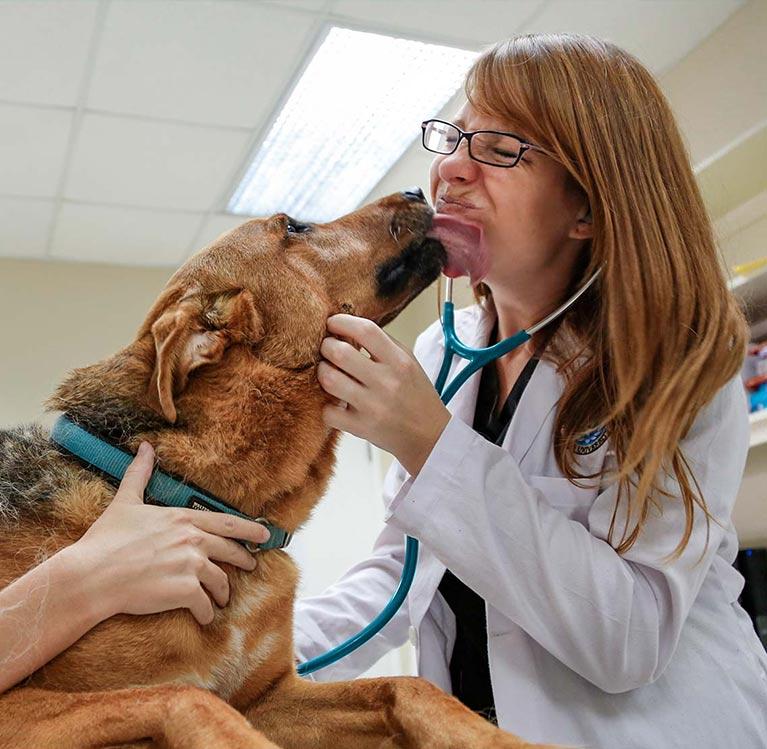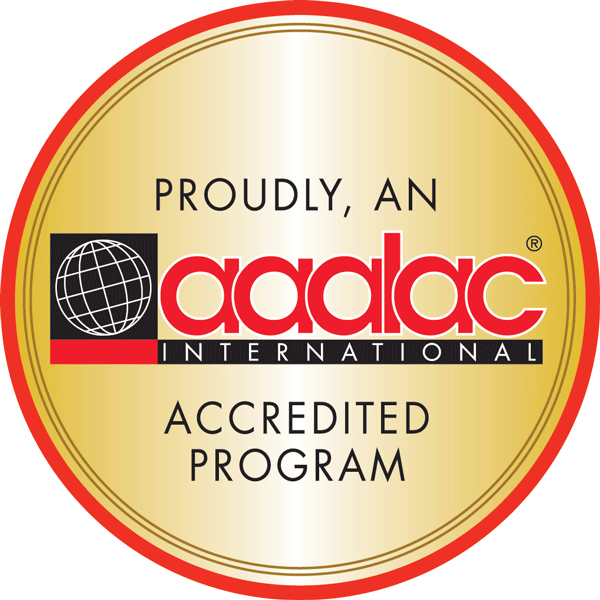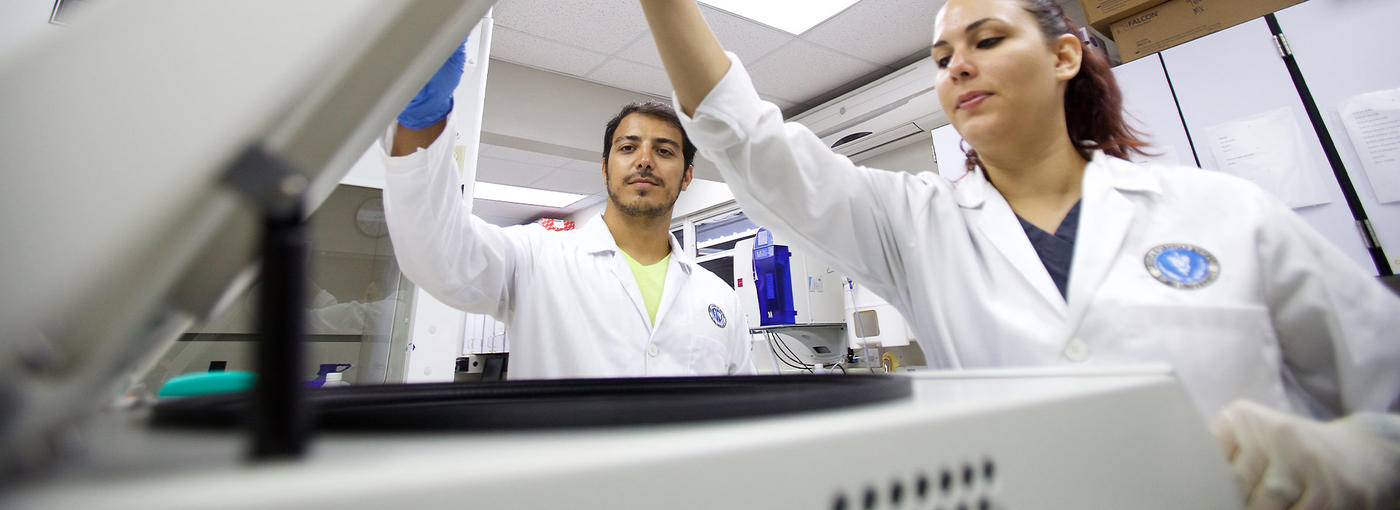ANIMAL WELFARE & USE
Ross University School of Veterinary Medicine’s policy is to safeguard and provide for the health, well being and overall welfare of animals used in teaching, research and testing.
Ross Vet is proud to have received accreditation by AAALAC International in 2019 and reaccreditation in 2022. AAALAC International is a voluntary accreditation program that evaluates organizations that use animals in research, teaching or testing and those that meet or exceed AAALAC standards are awarded accreditation.
The university will be re-evaluated every three years in order to maintain its accredited status. AAALAC International accreditation demonstrates that an institution is serious about setting, achieving and maintaining high standards for animal care and use and committed to animal welfare in science.
AAALAC International offers the only international accreditation for animal care and use programs, and it has become recognized around the world as a sign of quality and good science.
Ross Vet follows the Guide for the Care and Use of Laboratory Animals, NRC 2011, 8th Edition, the Animal Welfare Act as implemented by Title 9, Code of Federal Regulations (CFR) of the U.S., the AVMA Guidelines on Euthanasia (2020), and any published guidance from the government of St. Kitts as guidelines for standards of care and use of animals. All animals used in the education of veterinary students, continuing education of postgraduate veterinarians, and research and testing come under the jurisdiction of the Ross University School of Veterinary Medicine Institutional Animal Care and Use Committee (IACUC). The fundamental principle on which the animal care and use program is based requires self-regulation with oversight. Ensuring the ethical and sensitive care and use of animals in research, teaching, and testing is clearly demonstrated by the well-defined role of the IACUC. Use of animals at Ross Vet must undergo review and approval prior to such use.
Ross Vet’s curriculum provides a wide range of opportunities for hands-on training, which are presented in accordance with the restrictions and requirements set forth above. The curriculum includes dissection of animal cadavers, anesthesia, and survival surgeries on multiple species. Laboratory sessions may involve the handling of blood, urine, tissue, and fecal specimens obtained from animals or the local abattoir. Ross Vet offers only one course of study and curriculum to all students. Therefore, all students will be expected to participate in the handling of specimens and surgeries described.
INSTITUTIONAL ANIMAL CARE AND USE COMMITTEE
Ross Vet’s Institutional Animal Care and Use Committee (IACUC) serves as a resource for investigators, faculty, staff, and students using animals in teaching and in research to ensure that all animal use is in accordance with the highest ethical, humane, and scientific principles and complies with all regulations.
The IACUC follows the principles of the three "R's" of animal use and promotes these principles on the Ross Vet campus as well as for all off-campus animal use affiliated with the university.
Replace animal models with non-animal alternatives whenever possible.
Reduce the number of animals used to the minimum required to meet the goals of the course, experiment, or wet lab.
Refine protocols to minimize animal stress, pain, or suffering.
IACUC PROTOCOLS APPROVAL
IACUC is responsible for reviewing all protocols involving animal use, inspecting animal facilities and laboratories, and ensuring that animal users are appropriately trained. The committee reviews and approves research and teaching protocols involving the use of animals, ensuring animal welfare. An approved and current animal use protocol is required before any research or educational project using animals commences at the University. The committee meets once a month during the regular semester to review protocols. Protocols are valid for a maximum of three years but must be reviewed yearly by the IACUC. After three years, when the protocol expires, a de novo resubmission is required for review and approval.
Protocol submissions for new protocols, de novo and annual renewals, and amendments are all completed via a web-based program. If you or a member of your protocol team need assistance accessing the web-based program, please contact the IACUC Administrator.
LINKS TO HELPFUL WEBSITES
Guide for the Care and Use of Laboratory Animals (2011)
Guide for the Care and Use of Agricultural Animals in Research and Teaching (2020)
St. Christopher and Nevis Chapter 11.04, Protection of Animals Act (2002)
St. Christopher and Nevis Chapter 9.28 Veterinary Act (2002)
IACUC FORMS & RESOURCES
- 2024-2025 IACUC Activity Calendar
- IACUC General Policy on the Care and Use of Animals
- IACUC Training
- Animal Care Hurricane and Disaster Plan
- Evacuation Plan for Animal Care and Use Areas
- Animal Resources Continuity of Services Plan
- Requirements of Facilities that House Animals
- Reporting and Investigating Animal Welfare Concerns Policy
- Post Approval Monitoring Policy
- Euthanasia Policy for RUSVM Owned Animals
- IACUC Protocol Review Process
- Protocol Review Checklist for Required Content
- Guidelines for Categories of Animal Use and Rest Periods
- Use of RUSVM Dogs in Research and Training
- Guidelines Determining IACUC Oversight
- FCP and Research
- Sick Animal Reporting Flow Chart
- Satisfying IACUC Protocol Requirements
- Authority of the AV
- Fieldwork Safety Planning Guideline
- Counting and Reporting Animal Use Numbers
- Reporting Adverse Events






